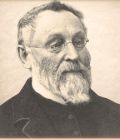COMMON NAME :
PICRIC ACID.
Symptoms
It corresponds in general to symptoms of neurasthenia or brain fag. It also has a marked action on the sexual organs (D.)
Is often restorative of a wasted and worn-out system (A.)
Depression and weariness from slight fatigue (Kali-P., Phosphorus) (D.)
MENTAL INACTIVITY (Agn., Calcarea, Gelsemium, Acid phosphoricum., Silicea) (C.)
Lack of will power (Gelsemium, Pulsatilla) (C.)
Indifference to everything (Acid phosphoricum., Sepia) (C.)
Great weakness of the spine and back (Cocc., Natrum muriaticum, Silicea) (A.)
Burning along the spine (Kali-P., Phosphorus, Zincum met.) (A.)
Softening of the spinal cord (Phosphorus) (A.)
Dementia with prostration (Br.).
BRAIN-FAG (Conium, Kali-P., Acid phosphoricum., Zincum met.) (D.)
SLIGHTEST EXERTION BRINGS ON SPEEDY EXHAUSTION (Arsenicum, Camph., Kali-P., phosphorus, Veratrum)
NEURASTHENIA ( Arsenicum, Calcarea phos., Kali-P., Lycopodium, Mosch., Nux-v., Opium, Sepia, Sil) (A.).
Desire to lie down and rest (Gelsemium, Nux vomica, Sepia) (D.)
Headache of students, teachers and over worked businessmen (Nux- V.); aggravated or brought on by the slightest motion or mental exertion. (Natrum muriaticum) (A.).
Pain in the occipito-cervical region( Bryonia, Cocc., Natrum muriaticum, Petroleum, Silicea) (A.)
Tired, heavy feeling all over the body; especially of the limbs, worse on exertion (Nux vomica, Acid phosphoricum.) (A.)
PRIAPISM ASSOCIATED WITH SPINAL DISEASE; TERRIBLE ERECTIONS (Cantharis, Phosphorus) (N.)
THE PENIS IS SO DISTENDED THAT IT FEELS AS THOUGH IT WOULD BURST ( Cantharis, Fluor-Ac., Phosphorus) (BI.)
EXCESSIVE ERECTION DURING LASCIVIOUS THOUGHTS (Copaiva) (K.)
ERECTIONS WORSE AT NIGHT (Aurum, Cantharis, Fluor-Ac.,Acid nitricum, phosphorus, Plat,., silicea, Thuja, ) (K.).
Profuse seminal emissions (Agaricus, Carbo vegetabilis, Kali carb., Merc-I-F., Natrum muriaticum, Petroleum, Acid phosphoricum., Sepia, Staphysagria, Sulphur, Zincum met.) (A.).
Satyriasis : erections violent and long-lasting (Cantharis, Phosphorus) (A.).
Weariness, progressing from a slight feeling of fatigue on motion to complete paralysis (Causticum, Nux vomica, Phosphorus, Zincum met.) (A.)
Numbness or formication (Kali-P., Phosphorus) (B.)
Small painful boils in any part of the body (Arnica, Hepar, Mercurius, Sulphur), but not especially in the external auditory canal (Calc-Pic., Mercurius, Sulphur) (A.).
Oily or greasy stool (Iodium, Thuja) (K.).
Diarrhoea worse in the evening (Aloe., Bovista, Calcarea, Cyclamen, Gelsemium, Kali carb., Kali-P., Lachesis, Mercurius, Nat-S., Acid phosphoricum., Phosphorus, Sanguinaria, Sarsaparilla, Sulphur, Veratrum) (K.).
Ammoniacal, dribbling urine (Mercurius, Petroleum, Phosphorus) (B.)
AGGRAVATION:
From least mental exertion; from motion; from study; in wet weather; from sexual excitement; and from loss of semen.
AMELIORATION:
From cold air; from cold water; from bandaging; and from repose.
RELATIONSHIP:
Compare: Argentum nitricum, Bar-C., Calc-Pic., Cantharis, Gelsemium, graph., Hepar, Kali-P., Mercurius, Natrum muriaticum, pEtr., Acid phosphoricum., Phosphorus, Rhus toxicodendron, Sepia, silicea, Sulphur, Thuja, and Zincum met.

